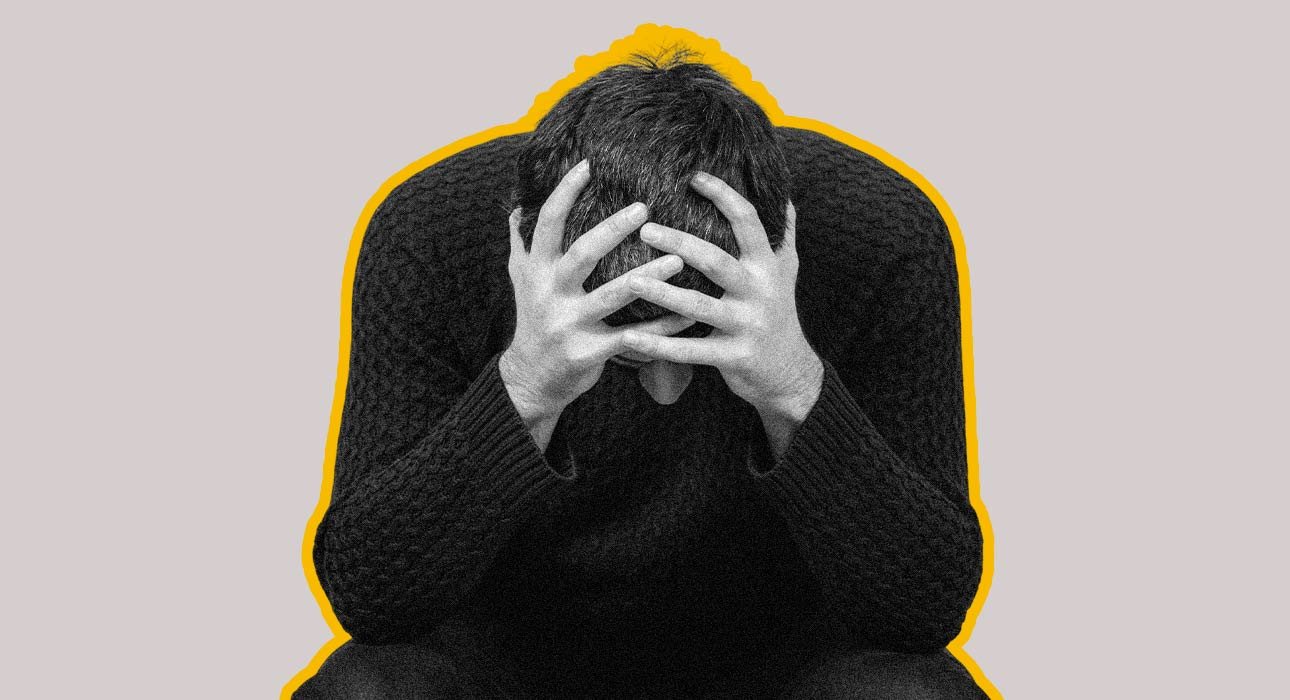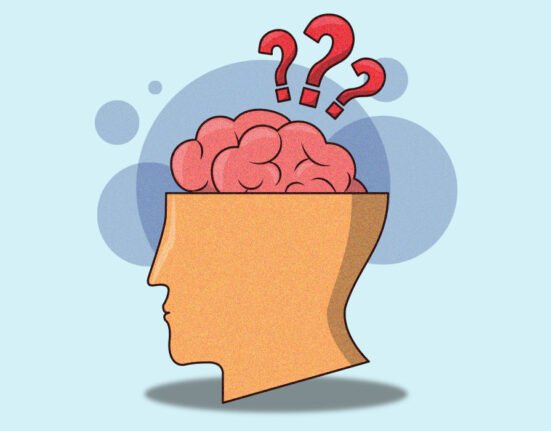Am I doing enough? Less useful a question ever posed, but hovering at the edge of our everyday worries when we let a home call go to voicemail, skip a social invitation from a friend, or call in sick one day just to hang out. This is what keeps us tied back; it binds hearts to useless strings. It guilt-tripped us every time we tuned out emotionally from individuals we loved, every time we self-centeredly prioritised self and complained about self-centring, the instant we are, or every time we communicated a message without memory.
Read More: Perfectionism in Academia: When ‘Doing Your Best’ Never Feels Enough
Understanding Psychological Guilt
Psychological guilt is not an emotion but a values and feelings-guided compass. Only, the compass gets steered off course at times and makes us dig deep into responsibility versus loneliness. The fact is, all guilt is pathological. Just like there are shades in a continuum, so there are in the guilt continuum of healthy conscience to emotional numbness. Getting to the “Guilt Spectrum”, there is no one voice or tone of guilt. Psychologists would have no trouble whatsoever in holding forth that it seems to be on a continuum from light, energising guilt to heavy, paralysing guilt.
Constructive vs. Toxic Guilt
- Constructive guilt is the type that makes us strong.
It is the constructive reminder that gets us to shape up and become who we might be.
- Toxic guilt strangles us with shame.
It faults us for not being our better selves. Take,
Read More: The Psychology of Rest: Why You Feel Guilty Doing Nothing
An Example of Clean and Toxic Guilt
For Example, A memory lapse regarding a friend’s birthday will have clean guilt that will lead you to call them. When it becomes “I’m a bad friend,” however, it’s poisonous. Psychologist Dr June Tangney characterised guilt as action-oriented “I did something wrong,” whereas shame is self-oriented “I am wrong.” Clean guilt is a good friend. Toxic guilt is a hindrance.
The War of “Doing Enough”
Our lives are too busy now for productivity to be worth anything, and we all equate production and deservingness. We’re constantly advised to “do more,” “be on,” “be available.” Even recreation is something we’re supposed to try to do. That’s how rest guilt comes to be created, this nagging feeling that we shouldn’t be able to rest. A study in Frontiers in Psychology in 2021 found rest guilt to be a great indicator of emotional burnout, but only for people whose motivation is achievement. What your inner critic will say about you is:
- “Others are doing more than me.”
- “I should have answered sooner.”
- “If I cared about them at all, I’d be there.”
These are not facts, exactly.
Those’re should’s nobody human being ever gets to live up to. Being enough isn’t necessarily doing it all. It might simply be being there in good faith when you can be, and being kind to yourself when you can’t be.
Read More: ‘I Should Be Doing More’: The Internal Crisis Created by Wellness Influencers and Hustle Culture
Family, Culture, and Emotional Responsibility
Family, Culture, and Emotional Responsibility Family is the identity rhythm of almost all cultures, especially collectivist cultures. Love is found through obligation, self-sacrifice and caring. And thus, if one is self-dependent, there is guilt as the unwelcome guest. Psychologists have called it filial guilt, the psychic tension brought about by personal aspiration that drives us away from family duty.
A move to another town to toil or study, say, would be treachery, although for the sake of advancement. This is “value dissonance,” Dr Susan Krauss Whitbourne describes as wants vs. what the world wants us to want. Avoidance of being rejected does not give us harmony, but oneness acquisition mechanisms of feeling oneness in a process of individuation.
Affective space can be filled with a friendly phone call, a thank-you letter written, or a dearest memory remembered. Remember love, and remember that love is not lost in distance; and have done differently.” All of this relentless blaming exhausts the emotional mind. Beneath that blaming, though, is something softer.
Read More: Responsibility vs Accountability: Is Responsibility Enough?
The Soft Side of Guilt
We are guilty because we have concern for what we’re doing to others, to relationships, and to what we owe. Instead of blaming the buck, we can hear it in compassion. Ask yourself, what is this feeling defending? What value is it signalling? In shifting guilt to guide instead of critic, we step closer to healing and speaking the truth.
Guilt in the Age of Technology
It is in the Age of Technology. With life hyperconnected, there’s cyber guilt. We’re guilty of not being improvisational, present in the moment, guilty of not telling someone’s story, guilty of not being quite so connected. The fantasy of “constant connection” re-mapped our caretaking minds. As psychologists are quick to tell us, emotional presence can’t be quantified in screen time, though.
Log out is not akin to FOMO; more probable than not, you’re more connected. Social media, as per a 2022 Computers in Human Behaviour study, induces emotional comparison, leaving social media users more anxious and guilty. The next time you’re going to be late, recall: “Real care doesn’t disappear when the screen does.” Timed break or do-not-disturb moments are what digital boundaries are about: keeping up with mental speed and making real connections.
Read More: When Productivity Becomes a Burden: Escaping the Pressure to Always Do More
Turning Guilt into Growth
Among the emotional competencies to use to turn guilt into growth are:
- Practice Self-Kindness: Treat yourself kindly, just as you treat your friend kindly
- Reframe Guilt: Shift “I’m bad for not doing more” What you say can influence the way you think and feel.
- Set Emotional Boundaries: No is fine. Boundaries aren’t rejection; they’re statements of emotional fact.
- Grounding Exercises: If you can’t get the burden of guilt out of your head as suddenly as a jump out of nowhere, breathe, write in a journal, or walk intentionally. These put you in the now instead of in self-blame.
- Let Go of Imperfection: You won’t have to get it all perfect. Forgiveness of others and yourself lets go of the burden. Guilt is a natural compass; it directs you on a path of empathy without getting you mired in self-criticism
Social and Cultural Significance of Guilt
Good guilt is a soft guide that leads us to what is important. Focused and balanced, it produces greater connection, clarity, and calm.
Reflection Exercise: From Guilt to Growth
Try the easy reflection exercise
- Find the Cause: Why did you suppress guilt, burn out, or compare?
- Judge Control: Was it even in your control?
- Loving Kindness Healing: Fix, Mend the moment with kindness if at all possible.
- Letting Go: Let go of what you can’t turn back and change, and choose to grow from shame.
Read More: It’s Okay to Rest: Rewriting the Inner Narrative Around Worth and Productivity
Self-Compassion and Healing
As psychologist Dr Kristin Neff reminds us, “Self-compassion is not self-indulgence. It’s self-preservation.” You do not have to live on autopilot all the time to be a good thing. You do not have to sacrifice too much to love. Occasionally, love is being nice in small ways. Occasionally, it is sitting on another person’s back. Either or, you are accounted for. And then when that soft whisper of blame reaches you, “You should have done more,” remind yourself softly: “I care very much. I am imperfect. And that’s today’s okay.”
FAQs
1. What is the “guilt spectrum”?
It’s the degree of feeling guilty from good, value-based guilt that stretches us to bad, toxic guilt that shames and immobilises us.
2. Is guilt ever a bad thing?
No. It develops empathy and sensitivity. Toxic guilt does lead to self-blame and burnout.
3. How do I establish a balance between guilt while travelling with the people I care about?
Stay engaged in little ways, messages, snaps, or phone calls, but at no expense of mental health and personal space.
4. Why do I feel guilty even if I am looking out for myself?
That’s rest guilt conditioned behaviour to cloud rest with sloth. Gently remind yourself that rest will restore your ability to give and love.
5. How is guilt constructively reframed?
With mercy, forgiveness, and self-reflection. Gentle care transforms guilt into emotional feedback and not a life sentence
References +
Neff, K. (2021). Self-Compassion: The Proven Power of Being Kind to Yourself.
Brown, B. (2022). Atlas of the Heart.
Whitbourne, S. K. (2023). Psychology Today. The Role of Filial Guilt in Family Relationships.
Frontiers in Psychology (2021). Rest, Guilt and Emotional Burnout in Adults.
Computers in Human Behaviour (2022). Online Connectivity and Emotional Comparison in Young Adults.













Leave feedback about this